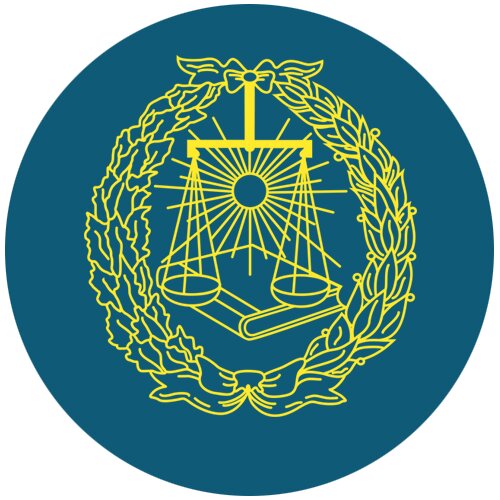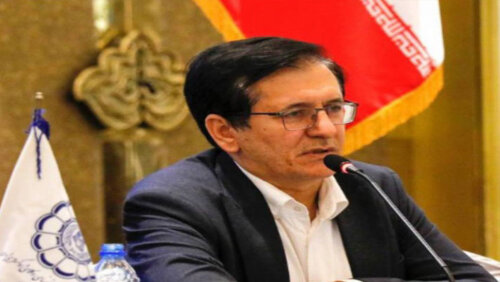Best Education Law Lawyers in Iran
Share your needs with us, get contacted by law firms.
Free. Takes 2 min.
Or refine your search by selecting a city:
List of the best lawyers in Iran
About Education Law in Iran
Education Law in Iran encompasses the legal framework and policies governing education at all levels within the country. This includes primary, secondary, and higher education. Iran's education system is heavily influenced by Islamic principles, and the laws are designed to reflect cultural and religious values. Education is compulsory up to a certain age, and the government plays a significant role in funding and regulating educational institutions.
Why You May Need a Lawyer
There are various situations where individuals or institutions may require legal assistance in the field of Education Law. Common scenarios include:
- Disputes over admission policies or discrimination claims.
- Issues related to the management and rights of educational institutions.
- Concerns with the education curriculum or religious content in schools.
- Cases involving student rights or disciplinary actions.
- Legal support for teachers or staff facing employment issues or unfair treatment.
Local Laws Overview
The education system in Iran is governed by both national legislation and regional policies. Key aspects of local laws include:
- Compulsory education laws that mandate school attendance.
- Regulations regarding private and public educational institutions.
- Laws ensuring gender segregation in schools and universities.
- Standards for teacher qualifications and employment rights.
- Provisions for the inclusion of religious studies in the curriculum.
Frequently Asked Questions
What age is compulsory education in Iran?
In Iran, education is compulsory for children between the ages of 6 and 11.
Can foreign nationals attend Iranian schools?
Yes, foreign nationals can attend schools in Iran, but they may face certain restrictions and should comply with local regulations.
What are the legal rights of students in Iran?
Students have rights to educational access, participation in the learning process, and protection against discrimination. However, these rights are subject to the framework of Islamic principles.
What should I do if I face discrimination in an educational institution?
It's advisable to first report the incident to the institution. If not resolved, seek legal advice to understand your rights and possible actions.
Are private schools allowed in Iran?
Yes, private schools are permitted, but they must adhere to the educational standards and regulations set by the government.
What is the role of parents in Iranian education law?
Parents are responsible for ensuring their children meet compulsory education requirements and may have a role in school boards or committees.
How is higher education regulated in Iran?
The Ministry of Science, Research, and Technology oversees higher education institutions, ensuring compliance with national policies.
Are there specific laws for special education in Iran?
Yes, there are regulations aimed at supporting children with disabilities, although resources may vary by region.
How are teachers' rights protected under Iranian law?
Teachers are protected by labor laws that govern employment terms, rights to fair treatment, and conditions of service.
What legal steps can I take if the school doesn't address my complaint?
If internal resolutions fail, consulting an education law attorney for guidance on legal action or mediation will be prudent.
Additional Resources
Here are some resources and organizations that can be helpful:
- The Ministry of Education: Oversees educational policies and regulations.
- The Council of Guardians: Ensures laws comply with Islamic principles, which includes educational statutes.
- Local Legal Aid Societies: Offer guidance and support on education-related legal matters.
- Educational NGOs: Provide support for issues related to education rights and advocacy.
Next Steps
If you require legal assistance in education law, consider the following steps:
- Identify the specific issue and gather any relevant documentation or evidence.
- Consult with a lawyer who specializes in education law to understand your rights and options.
- Engage in discussions with the educational institution to attempt a resolution.
- If necessary, pursue legal action or mediation as advised by your lawyer.
Lawzana helps you find the best lawyers and law firms in Iran through a curated and pre-screened list of qualified legal professionals. Our platform offers rankings and detailed profiles of attorneys and law firms, allowing you to compare based on practice areas, including Education Law, experience, and client feedback.
Each profile includes a description of the firm's areas of practice, client reviews, team members and partners, year of establishment, spoken languages, office locations, contact information, social media presence, and any published articles or resources. Most firms on our platform speak English and are experienced in both local and international legal matters.
Get a quote from top-rated law firms in Iran — quickly, securely, and without unnecessary hassle.
Disclaimer:
The information provided on this page is for general informational purposes only and does not constitute legal advice. While we strive to ensure the accuracy and relevance of the content, legal information may change over time, and interpretations of the law can vary. You should always consult with a qualified legal professional for advice specific to your situation.
We disclaim all liability for actions taken or not taken based on the content of this page. If you believe any information is incorrect or outdated, please contact us, and we will review and update it where appropriate.
Browse education law law firms by city in Iran
Refine your search by selecting a city.










